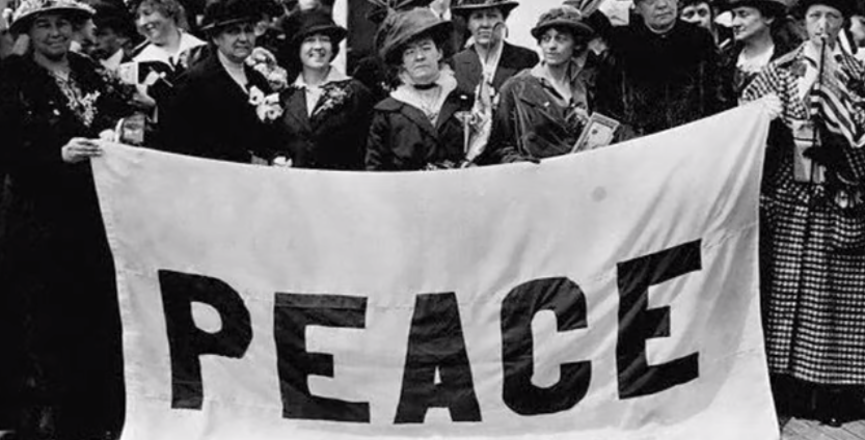Mother’s Day is this Sunday, May 10.
What is sometimes forgotten at this time of the year is that Mother’s Day has its roots in the feminist struggle against militarism and war.
Slate reports, “The women who originally celebrated Mother’s Day conceived of it as an occasion to use their status as mothers to protest injustice and war … In 1870, after witnessing the bloody Civil War, Julia Ward Howe — a Boston pacifist, poet, and suffragist who wrote the ‘Battle Hymn of the Republic’ — proclaimed a special day for mothers to oppose war.”
Her original proclamation for the day states, “From the bosom of the devastated earth a voice goes up with our own. It says, ‘Disarm, disarm! The sword is not the balance of justice.’ Blood does not wipe out dishonor nor violence indicate possession.”
National Geographic adds, Howe “promoted a Mothers’ Peace Day beginning in 1872. For Howe and other antiwar activists … Mother’s Day was a way to promote global unity after the horrors of the American Civil War and Europe’s Franco-Prussian War.”
And Jacobin magazine’s Branko Marcetic notes, “At its 1874 anniversary, participants sang songs and read papers, including one calling for the abolition of standing armies and war armaments and the creation of a system for universal peace arbitration.”
While Mother’s Day was recognized officially in the United States in 1914, the message behind the day appears to have been largely lost by 1917.
Time reports, “When the United States joined World War I in 1917, and the war propaganda machine revved up, the burst of patriotism came with a renewed appreciation for mothers. Women were hailed both for raising the soldiers who were on the front lines and for the work they were doing on the home front, such as running fundraisers for the Red Cross. Mother’s Day was a way to thank these women for their service.”
Over the past 100 years, the day has become increasingly commercialized and sentimentalized. It has been estimated that Canadians spend about $492 million on flowers, cards and gifts for Mother’s Day each year. Imagine if even a fraction of that was spent on challenging patriarchy, militarism, weapons and war.
This Mother’s Day, let us work to reclaim the radical origins of the day, challenge war and militarism, and strive to deepen our understanding of the intersectionality between feminism, social justice, care for Mother Earth and peace.
Brent Patterson is the executive director of Peace Brigades International-Canada. This article originally appeared on the PBI-Canada website. Follow @PBIcanada @CBrentPatterson on Twitter.



